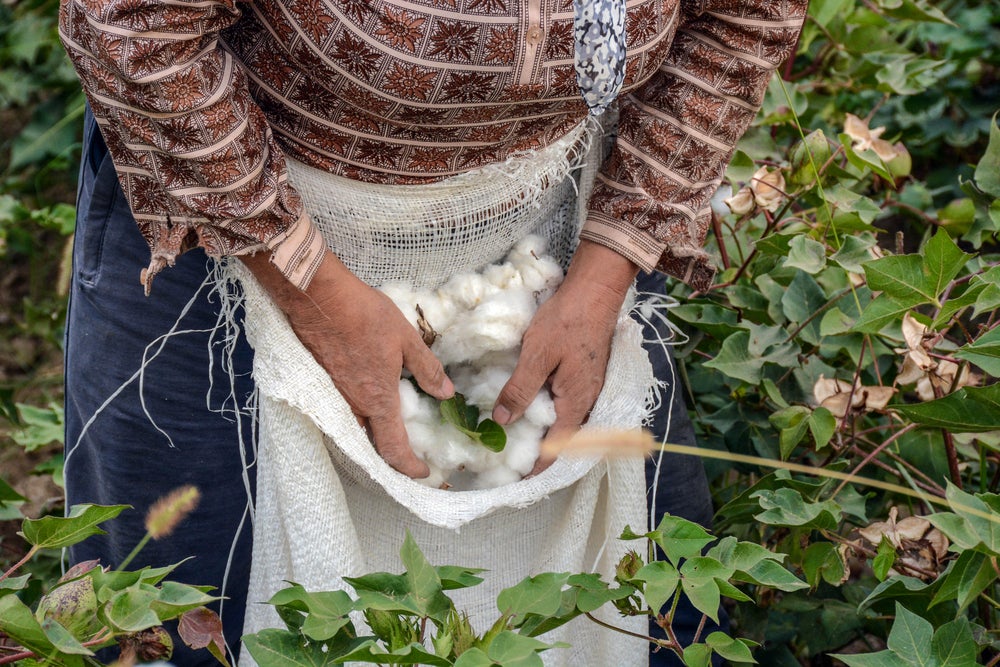
The Cotton Campaign is urging the Uzbek government to allow workers and farmers to form democratically elected unions and associations, and collectively defend their rights in order to protect progress made to end state-imposed forced labour in the cotton harvest and encourage responsible sourcing from the country.
The report found that risks for coercion of pickers persist in the annual cotton harvest and that cotton farmers remain vulnerable to exploitative practices by the government and cotton companies. In particular, cotton workers face constraints on their rights to associate and collectively bargain, and there is a low capacity for independent monitoring of labour rights.
While Uzbekistan has developed a vertically integrated textile industry, which could meet international labour standards, the Cotton Campaign has called for the protection of workers’ and farmers’ associations and bargaining rights, and for capacity building for independent monitoring of labour rights at each stage of production. Brands have due diligence requirements to demonstrate that labour rights are protected in their cotton supply chains, down to the raw material level.
“Forced labour, particularly in the private sector, exists along a spectrum and it is not static”, said Allison Gill, forced labour program director at Global Labor Justice-International Labor Rights Forum (GLJ-ILRF), which hosts the Cotton Campaign. “Independent trade unions and farmers’ associations play a critical role in protecting workers’ and farmers’ fundamental rights and ensuring stable employment and fair working conditions at each stage of cotton production.”
Nate Herman, senior vice president, of policy, American Apparel & Footwear Association (AAFA), added: “The integrated textile industry of Uzbekistan is potentially attractive to global brands and retailers, as it provides unprecedented opportunities for traceability of cotton supply chains. But one year after the Cotton Campaign ended its call for a global boycott of Uzbek cotton and lifted the Pledge, brands remain hesitant to source from Uzbekistan. Without stronger protections of workers’ and farmers’ rights, including the rights to freedom of association and collective bargaining, brands face a lack of transparency and uncertainty regarding the Uzbek cotton supply chain”.
Bennett Freeman, Cotton Campaign co-founder and former US deputy assistant secretary of state for democracy, human rights and labour noted: “At a time when global brands are closely evaluating Uzbekistan as a possibility for textile sourcing, the Uzbek government and cotton companies should demonstrate their commitment to international labour rights standard. In today’s context of supply chain governance, brands have due diligence requirements to demonstrate that labour rights are protected in their cotton supply chains, down to the raw material level.”
The Cotton Campaign submitted to the government of Uzbekistan a comprehensive Roadmap of Reforms in 2019 to end forced labour in the cotton industry and ensure that reforms are fundamental and sustainable. The roadmap outlines the three core objectives that are complementary and mutually reinforcing:
- End systemic forced labour
- Enact structural reforms
- Empower civil society to create an enabling environment for labour rights.
The Cotton Campaign is engaging with global brands to pilot a responsible sourcing model that will encourage good labour practices at cotton companies in Uzbekistan.



